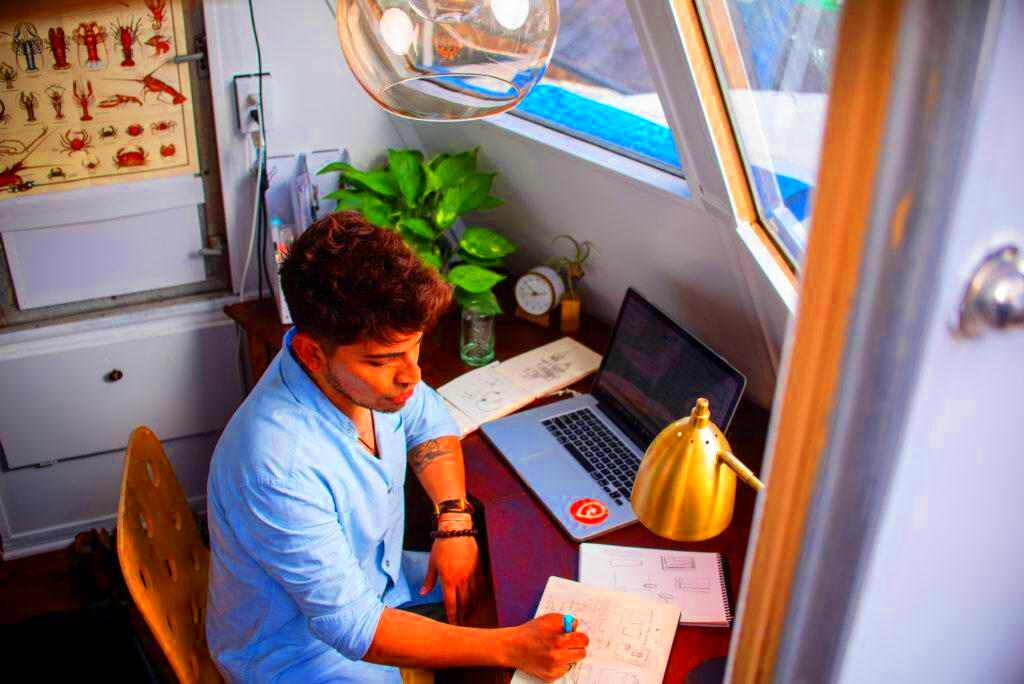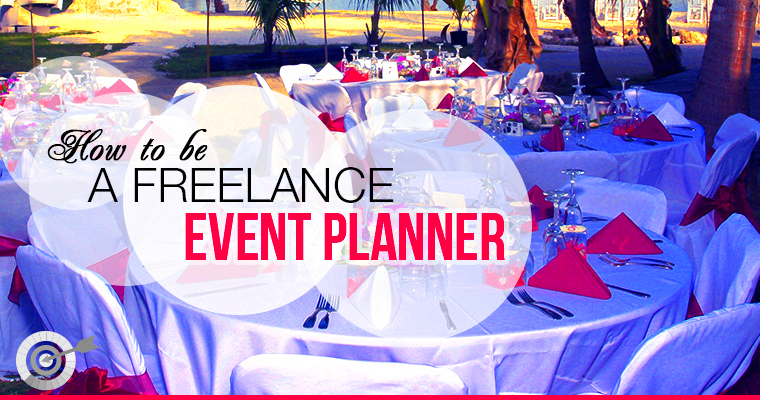When I initially considered the idea of working as a freelance event planner I had some doubts about what the daily routine would entail. To be honest it can be quite overwhelming at times. The reality is that you take on responsibilities in this role. Whether it's handling logistics or ensuring that every single detail matches the clients vision you essentially become the core of every event you plan. However that's also what makes it so appealing the diversity of tasks adds an element of thrill and ensures that no two days are ever alike.
Essentially as a freelance event planner you take care of everything from coordinating vendors to managing budgets. Most importantly you ensure that your client feels confident that their event is well taken care of. You are their point of contact, their troubleshooter and their source of creativity rolled into one.
Some of the key responsibilities include:
- Listening to client needs and crafting an event plan that reflects their goals.
- Organizing budgets and sticking to them (as much as possible – we all know budgets tend to stretch).
- Coordinating with vendors, venues, and other service providers.
- Handling on-the-day event management, ensuring everything runs smoothly.
- Managing post-event tasks, including feedback and follow-ups.
Building a Portfolio of Your Event Planning Work

My initial portfolio? Well, it wasn’t anything fancy. It included pictures from a wedding I assisted in organizing for a friend. I didn’t even ask for payment – it was primarily about gaining some hands on experience. However those initial attempts laid the groundwork for a body of work that I now take pride in. If you’re at the beginning of your journey don’t hesitate to tackle smaller, personal projects. You’ll be surprised by the amount of knowledge you gain when you’re thrown into planning something, from the ground up.
A strong portfolio goes beyond showcasing images. It should weave a narrative. Clients are interested in how you tackled hurdles or brought their ideas to fruition. Include glimpses of the process discuss the journey and most importantly let your individuality shine through your creations. After all event planning is an affair. People choose to work with you because they sense a connection to you.
To create a portfolio make sure to include the following elements.
- Event photos: Capture a variety of moments – from setup to the big event itself.
- Client testimonials: A few kind words from past clients can go a long way.
- Details of the event: What was the goal? How did you make it happen?
- Your personal touch: What unique twist did you bring to the event?
Even if you dont have any major events in the pipeline you can still demonstrate your knack for organization, creativity and managing logistics.
Also Read This: How to Work as a Freelance Developer
Finding Your First Clients in the Event Planning Industry

Securing your client feels like searching for a needle in a haystack. I recall thinking that people wouldnt treat me seriously because my portfolio was still limited. However I soon realized that the secret lies in nurturing connections. You could be the most skilled planner around but if no one is aware of your existence it wont make a difference.
Begin by reaching out to the people you already know. Your friends, family or even casual acquaintances can serve as your initial stepping stones. That’s how I landed my paid job – a family friend required assistance with organizing a small office event and word spread out from there.
Here are a few other ways to find clients:
- Attend industry events: Networking can feel awkward at first, but the more you put yourself out there, the better your chances of meeting potential clients.
- Collaborate with other vendors: Building relationships with florists, photographers, and venues can lead to client referrals.
- Use social media: Share your work on platforms like Instagram or Pinterest. Visual platforms work wonders for showcasing event planning skills.
- Join online freelance platforms: Websites like Fiverr or Upwork can also help you get started with smaller projects.
While it may take some time to develop it’s important to remember that each new relationship brings you closer to landing your initial major client.
Also Read This: How to Get More Fiverr Clients
Setting Your Rates and Managing Your Finances

Determining fees as an independent event planner can be a challenge. I recall my initial events; I was so keen to secure bookings that I set my prices too low. It wasn't until I acknowledged the amount of effort involved in planning – the sleepless nights and the ongoing coordination – that I recognized my worth. Finding the price point requires time but it's crucial not to undervalue yourself. It's important to take into account the time, dedication and skills you contribute to the process.
When setting your rates, think about:
- Your Experience: If you're just starting, your rates may be lower, but as you gain more experience, don’t hesitate to raise them.
- The Event Type: Weddings, corporate events, or small parties all have different levels of complexity, and your rates should reflect that.
- Location: Big cities may allow you to charge more compared to smaller towns, simply because the cost of living is higher.
- Expenses: Factor in costs like travel, vendor coordination, and any out-of-pocket expenses you might have during the planning process.
Handling your money can be quite a journey. Its not only about your income but also about how you manage it. Personally I stick to a basic approach keeping my personal and business finances separate. I really wish I had figured this out earlier! It simplifies the process of keeping tabs on your revenue, spending and of course tax matters.
Using financial management tools such as QuickBooks or Wave can assist you in staying organized. The crucial aspect is to maintain organization and prepare in advance for months, as freelancing can be quite unpredictable.
Also Read This: How to Make Money on Fiverr: A Comprehensive Guide
Marketing Your Event Planning Services

If there’s one lesson I’ve taken away it’s the importance of promoting yourself with confidence. You may be the top event planner in your region but if nobody is aware of your existence it won’t matter much. Initially I struggled with marketing but over time I came to understand that relying solely on recommendations has its limitations. It’s crucial to put yourself out there and showcase your abilities to others.
Here are some marketing tactics that have proven effective for me.
- Social Media Presence: I’ve found Instagram and Pinterest to be particularly helpful for event planners. Visuals are everything in this industry. Share images of your work, behind-the-scenes moments, and even client testimonials. Show the process, not just the end result.
- Create a Website: Having an online portfolio where clients can easily browse your past work and contact you is invaluable. I started with a simple site, and it made me look so much more professional.
- Networking with Vendors: Build strong relationships with photographers, caterers, and florists. They often refer clients to planners they trust.
- Word-of-Mouth: This remains one of the best ways to market your services. Every successful event is an opportunity to create future referrals.
Marketing doesnt need to be overly complex or costly. Begin with a strategy and as you expand your business your marketing initiatives can evolve alongside your progress.
Also Read This: Top 10 Community Managers on Fiverr in 2024
Tools and Resources to Enhance Your Event Planning Career
In the beginning I handled everything by keeping track of lists using spreadsheets and sending out countless emails. It got the job done but it wasn't the most efficient way to operate. With the growth of my projects I realized it was time to bring in some tools to help me manage things better. The silver lining is that there are a lot of great resources available, that are tailored specifically for event planners.
Here are a few tools that have really simplified things for me.
- Trello: This tool helps me manage projects visually. I create boards for each event and track tasks, deadlines, and vendor communications. It’s especially helpful for managing multiple events at once.
- Google Drive: This might sound basic, but I can’t imagine working without it. From contracts to event schedules, everything is stored in one place, and I can easily share documents with clients.
- Canva: I use Canva for creating event mood boards and promotional materials. It’s simple but effective, and clients appreciate seeing a visual representation of what I’m planning.
- HoneyBook: This is an all-in-one client management system. It allows me to handle invoices, contracts, and even communications in one place. When I started using HoneyBook, I felt so much more in control of my business.
Discovering the tools can revolutionize your workflow. As a self employed event planner every minute counts so investing in anything that simplifies your process is a smart move.
Also Read This: How to Change Your Name on Fiverr
Handling Challenges as a Freelance Event Planner
Being a freelance event planner means facing challenges from all angles. There are times when you have to navigate clients who suddenly change their minds mid planning. Other moments bring unexpected weather or a vendor not delivering on their promises. The secret to tackling these obstacles lies in remaining composed and adaptable.
Some common challenges include:
- Last-minute changes: Clients may have a sudden change of heart, or a new trend might pop up that they want to incorporate.
- Budget constraints: You often have to get creative with limited resources, finding ways to make an event look luxurious without breaking the bank.
- Vendor issues: Vendors may not always deliver on time, or they may have quality concerns. Building strong relationships with reliable vendors can help mitigate this.
- Managing expectations: Sometimes, what the client wants is far beyond what their budget allows. Learning to diplomatically set expectations is crucial.
It’s not only about keeping things in order; it’s also about being able to think fast and come up with solutions on the spot. As time goes by you’ll build up a set of techniques to navigate these challenges and with each experience you’ll improve your skills in dealing with surprises.
Also Read This: Where to Promote Fiverr Gigs: A Comprehensive Guide
Frequently Asked Questions
Q: How much experience do I need to become a freelance event planner?
You dont have to wait until you have years of experience to get started. I kicked off my journey by organizing events for my loved ones and gradually honed my abilities and boosted my self assurance. Begin with something manageable and then expand your horizons.
Q: How do I get clients without a big portfolio?
A: Start by tapping into your connections. Consider taking on gigs, even if they don’t pay at the beginning. As your work gets noticed the news will travel and you’ll gradually build up your portfolio.
Q: What if I face a problem I don’t know how to solve during an event?
Dealing with challenges is just a part of the work, but keeping your composure is crucial. Rely on your gut feelings and don’t hesitate to reach out for assistance when necessary. As you gain more experience, your ability to solve problems will improve.
Q: How do I price my services as a beginner?
To determine your pricing as an event planner begin by looking into the fees charged by other planners in your region. Take into account your level of expertise and the intricacy of the event. With time and increased experience you can modify your rates to reflect your growth.
Conclusion
Embarking on a career as a freelance event planner might feel overwhelming at first. However each stride you take brings you nearer to perfecting the skill of creating memorable events. The path is laden with valuable insights ranging, from determining pricing to navigating the pandemonium that can ensue on an events day. Yet amidst the challenges the satisfaction of witnessing a clients vision materialize is what truly makes it all worth it. Continue to expand your knowledge remain flexible and always view every obstacle as a chance for personal growth.




